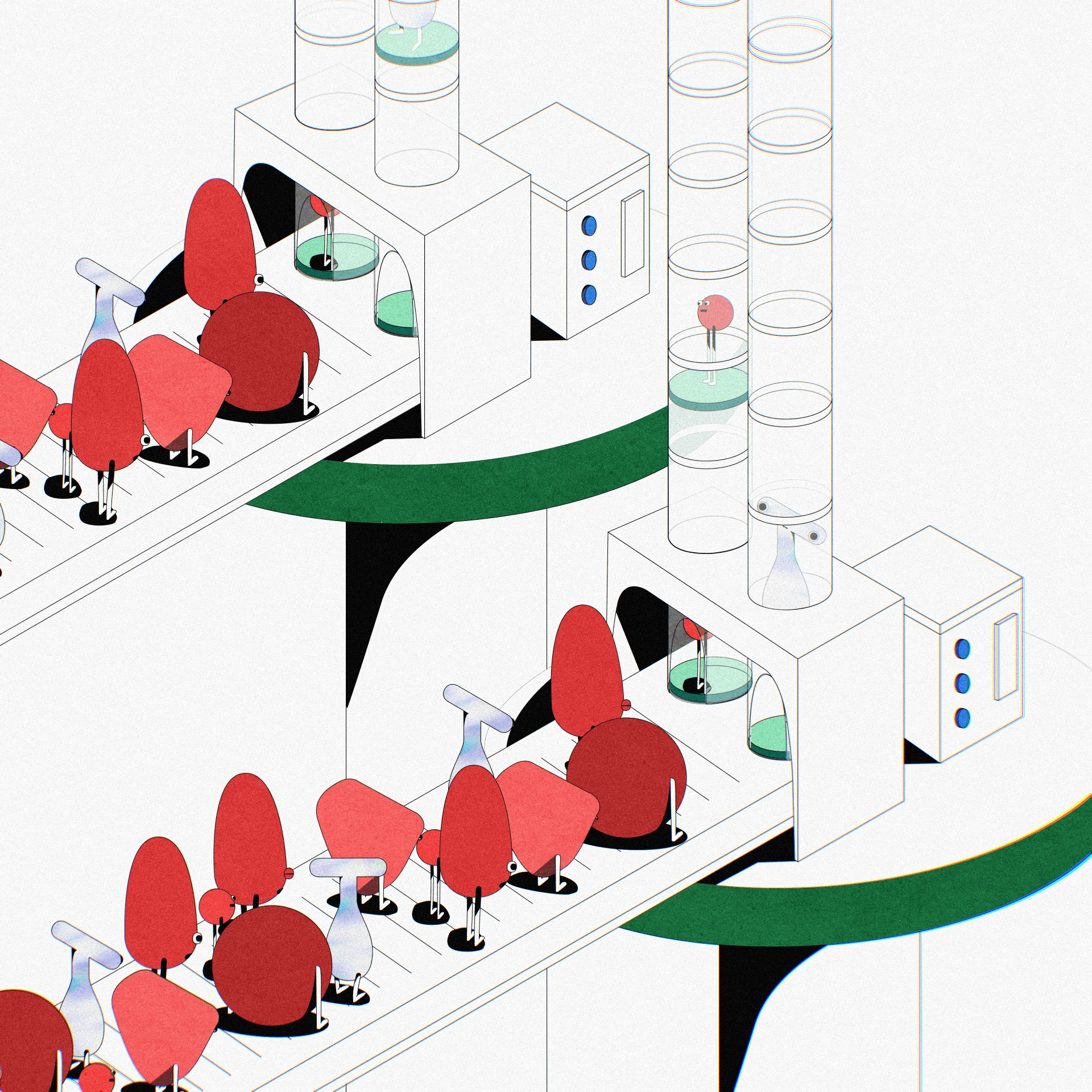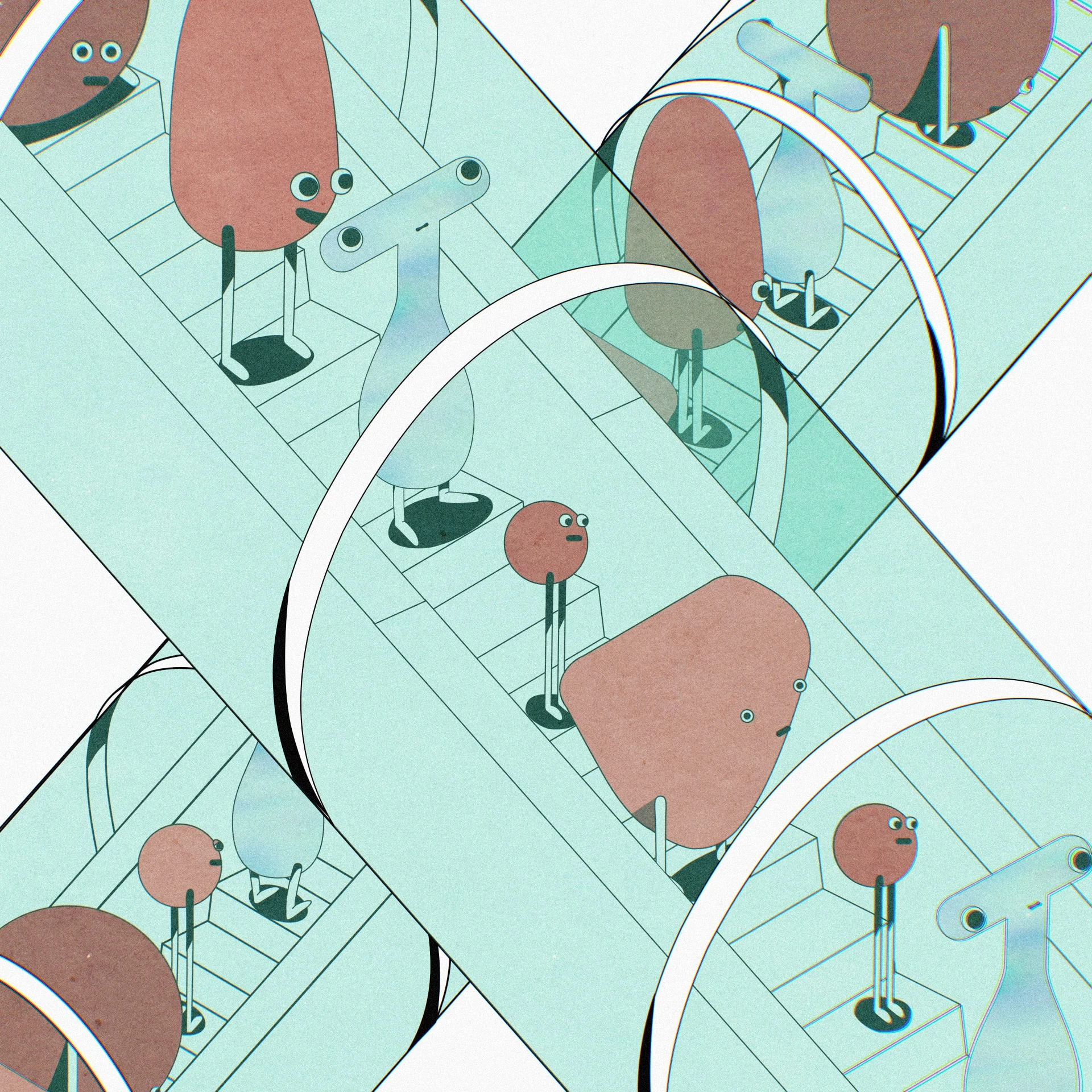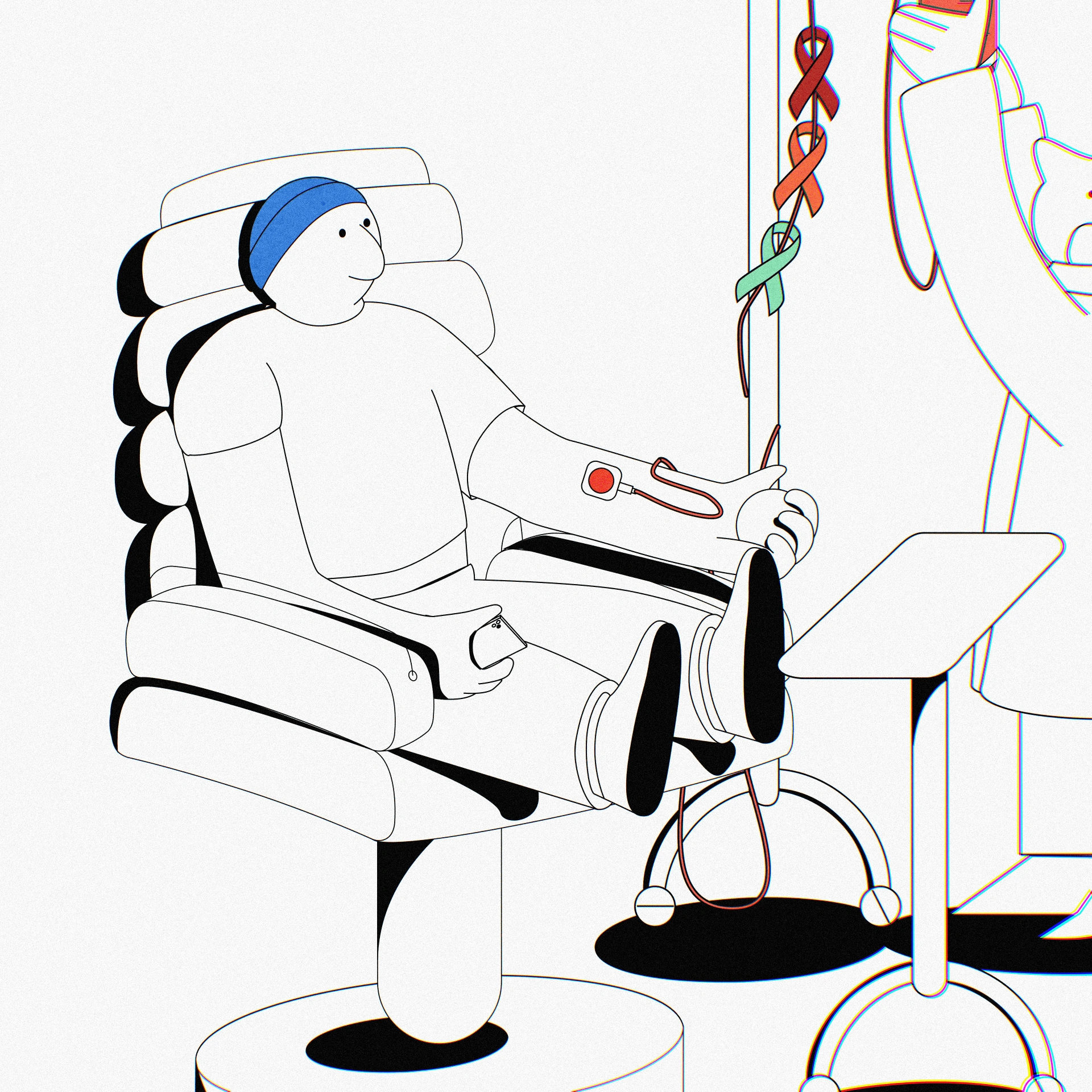Dave Kiehl | T-CELL TUNE-UP TO TREAT CANCER
Project Wonder: The Art of Science at the Medical College of Wisconsin partners basic and translational scientists with local artists and writers to elevate and amplify their innovative, life-changing research and its impact through bold, imaginative, one-of-a-kind artistic representations. Promoted across Instagram, Facebook, Twitter and LinkedIn, this campaign reaches more than one million people nationally.

What if your immune system could be enhanced to find cancer cells and eliminate them?
The immune system naturally searches for cancer cells in its routine work of patrolling for foreign invaders ranging from bacteria and viruses to common allergens such as dust and mold. White blood cells known as T cells are the immune system’s Coast Guard, sailing through the bloodstream and passing into and out of tissues on the lookout for unwelcome invaders. T cells detect foreign entities by interacting with molecules known as antigens that are present on the surfaces of pathogens and cancer cells. If these white blood cells recognize an antigen that isn’t supposed to be in the body, the T cells can raise the alarm and trigger an immune response to gather more T cells and other immune cells to remove the threat.

Cancer cells, however, can be sneaky saboteurs and slip through the tiniest cracks in the immune system’s many layers of defense. Cancer cells can cloak themselves against patrolling T cells by hiding the surface antigens T cells use to intercept interlopers. Recent advances in genetic engineering now allow physicians and scientists to supercharge the body’s own T cells through a technology known as chimeric antigen receptor (CAR) T-cell therapy.
To develop a dose of CAR T-cell therapy, a sample of blood from a patient is separated into its components: plasma, red blood cells, white blood cells and platelets. This allows the patient’s T cells to be isolated, genetically modified to contain CAR receptors on the cell surface, and then multiplied into the millions of cells needed for an effective dose. That dose then is injected back into the patient.

Cancer cells are less effective at hiding from CAR T cells, which enhances the ability of the immune system to locate cancer and activate an effective immune response to remove it from the body. In addition, unlike most other medicines (which are inanimate molecules that eventually break down within the body), CAR T cells are considered “living drugs” that can continue to expand and grow to fight the cancer. These CAR T cells can persist for years in the bloodstream and remain on the lookout for any new cancer cells that emerge.
Credits:
Dave Kiehl
Soundtrack:
Alex Boyes
Instagram:
@davekiehl
Like this project
Posted Aug 9, 2024
What if your immune system could be enhanced to find cancer cells and eliminate them?
Likes
0
Views
6
Clients

Medical College of Wisconsin






